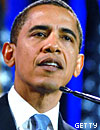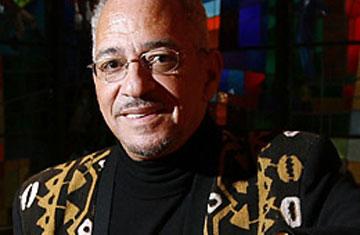 Barack Obama advertises himself as the candidate who can transcend deep-seated divisions in our politics and culture, and his interview in today’s Advocate–the gay national news mag–offers a good example of him engaging in that difficult work. In it, Obama attempts to bridge the oft-portrayed rift between the church and the homosexual community.
Barack Obama advertises himself as the candidate who can transcend deep-seated divisions in our politics and culture, and his interview in today’s Advocate–the gay national news mag–offers a good example of him engaging in that difficult work. In it, Obama attempts to bridge the oft-portrayed rift between the church and the homosexual community.
Rather than discuss those two communities as being at odds with one another, Obama challenges the church to accept gays and to speak out on gay rights and related issues–without coming across as an outsider lecturing a institution he disapproves of, as some gay rights proponents do. He’s calling on religious traditions to confront and work through these issues rather than arguing that religion has no place influencing American’s views on homosexuality and gay rights.
God-o-Meter thinks this represents a significant departure from past Democratic candidates. John Kerry comes to mind. Was he comfortable enough in the church community to challenge it in such a way? He was more likely to explain liberal stances on contentious social issues by saying that he could not impose his religious beliefs on other people, a signal to voters that he kept his religion and politics separate. In the Advocate interview, Obama is more intent on reconciling the two, which God-o-Meter believes will go over better with religious voters–even the ones who disagree with his call to repeal “don’t ask, don’t tell” and the Defense of Marriage Act.
Here’s the part of the interview that illustrates this phenomenon:
There’s plenty of homophobia to go around, but you have a unique perspective into the African-American community. Is there a…
I tell you what, my campaign is premised on trying to reach as many constituencies as possible, and to go into as many places as possible and sometimes that creates discomfort or turbulence. This goes back to your first question. If you’re segmenting your base into neat categories and constituency groups and you never try to bring them together and you just speak to them individually — so I keep the African-Americans neatly over here and the church folks neatly over there and the LGBT community neatly over there — then these kinds of issues don’t arise.
I don’t think it’s worse than in the white community. I think that the difference has to do with the fact that the African-American community is more churched and most African-American churches are still fairly traditional in their interpretations of Scripture. And so from the pulpit or in sermons you still hear homophobic attitudes expressed. And since African-American ministers are often the most prominent figures in the African-American community those attitudes get magnified or amplified a little bit more than in other communities.
Do you think there’s a specific prescriptive, which is not to say that there’s more homophobia in the African-American community. But is there a different answer to…
Well, I think what’s important is to have some of that church leadership speak up and change its attitudes, because I think a lot of its members are taking cues from that leadership.
Do you have any regrets about the South Carolina tour? People there are still sort of mystified that you gave Donnie McClurkin the chance to get up on stage and do this, and he did go on sort of an antigay rant there.
The flip side of it is, you never create the opportunity for people to have a conversation and to lift some of these issues up and to talk about them and to struggle with them and our campaign is built around the idea that we should all be talking. And that creates some discomfort because people discover, gosh, within the Democratic Party or within Barack Obama’s campaign or within whatever sets of constituencies there are going to be some different points of view that might even be offensive to some folks. That’s not unique to this issue. I mean, ironically, my biggest … the biggest political news surrounding me over the last three weeks has been Reverend Wright, who offended a whole huge constituency with some of his statements but has been very good on gay and lesbian issues. I mean he’s one of the leaders in the African-American community of embracing, speaking out against homophobia, and talking about the importance of AIDS.
9

